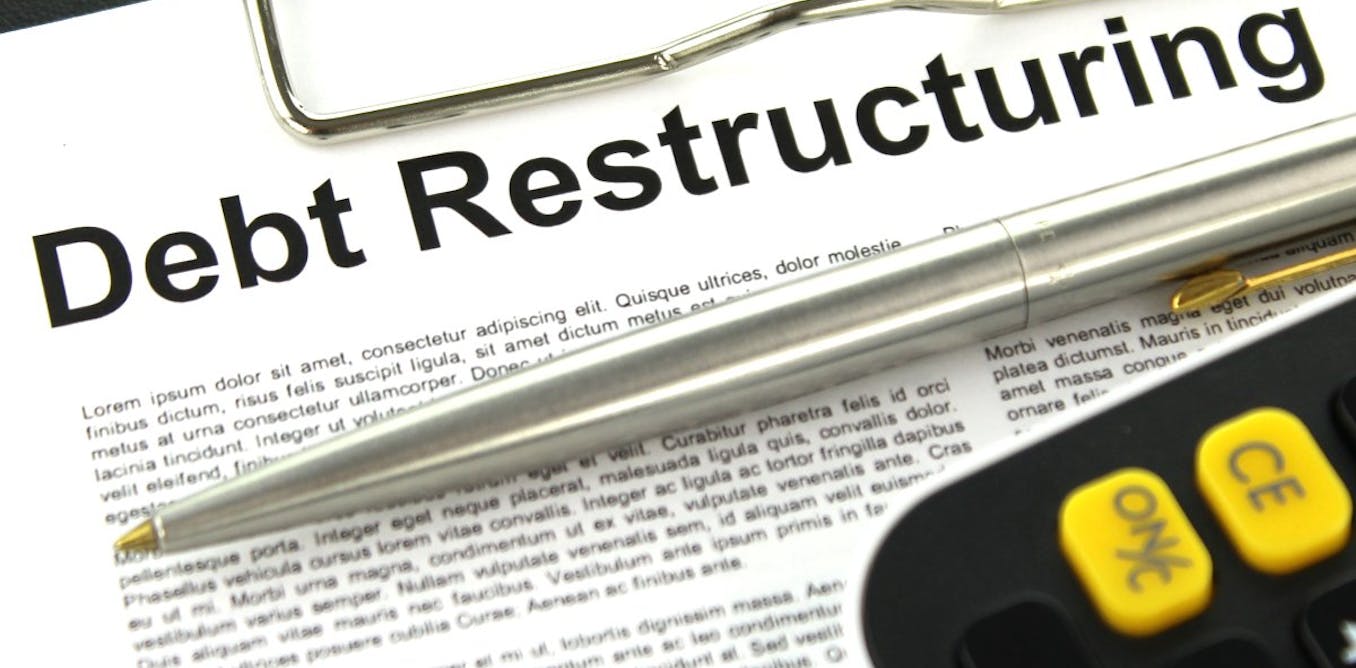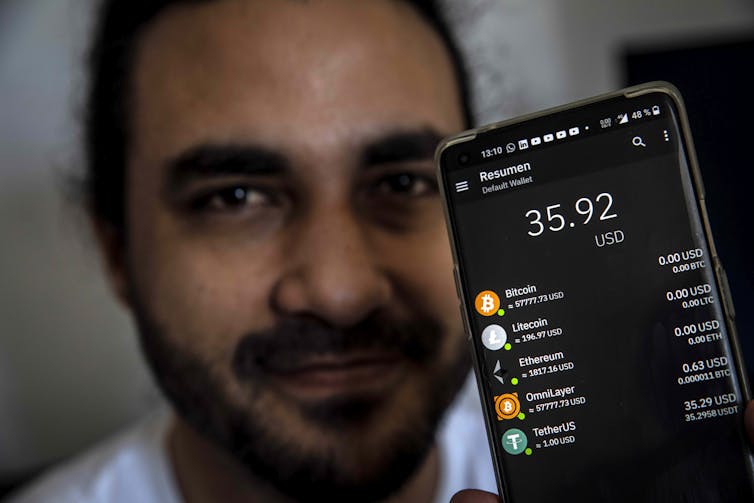
Ghana’s home debt restructuring has stalled: 4 the reason why
Ghana is going through a couple of monetary and financial demanding situations and has asked a US$3 billion bailout from the Global Financial Fund (IMF) to lend a hand it repair macroeconomic balance. This will likely come with bringing public debt all the way down to extra manageable ranges from the lately estimated 105% of GDP to 55% in provide price phrases by means of 2028.
IMF help, which is but to be authorized by means of the fund’s government board, is conditional on Ghana restructuring its public debt – home and exterior – which in flip calls for the buy-in of bondholders. Which means those that lent cash to the federal government by means of purchasing bonds should comply with the restructuring, comparable to an extended compensation length.
As a primary step of the debt restructuring, the Ghanaian executive introduced a voluntary Home Debt Trade Programme (DDEP) in early December 2022. It seeks to replace about GHS137.3 billion (US$11.45 billion or about 15% of 2021 GDP) of current home notes and bonds held by means of more than a few native buyers for a package deal of 12 (to begin with 4) new bonds with other payout dates.
For any sovereign debt restructuring workout to be triumphant, a qualifying majority (in most cases 75%) of debt holders will have to agree to modify the contract’s key monetary phrases. This prevents a minority investor staff from conserving out and combating the debt restructuring from continuing.
However the subscription to this programme is beneath 50%, smartly beneath the federal government’s 80% goal. Bondholders have said that the phrases introduced imply that they’re going to lose cash.
Teams such because the Ghana Particular person Bondholders Discussion board have estimated losses of fifty% to 90% on their investments in the event that they alternate their present tools.
That’s the place issues are caught, forcing executive to increase the last date for the bond alternate 3 times already since early December 2022.
So what’s long past incorrect? Why has the federal government no longer been ready to get home bondholders to simply accept the phrases it has put at the desk?
I be offering 4 causes: buyers face important losses; the federal government’s “take-it-or-leave-it” manner; a loss of religion within the executive; and the truth that there’s no sense of sharing the load.
What’s in the back of the standoff
Vital losses by means of buyers: My colleague Dr Yakubu Abdul-Salam estimates that buyers will lose 62.40% in their bond’s authentic marketplace price. The Ghana Particular person Bondholders Discussion board says bondholders will lose about 88.2% in their investments at present inflation ranges. A number of bondholders have refused to take part. That is opposite to the federal government’s previous expectation of “overwhelming give a boost to for this alternate”.
Ghana’s executive has to this point introduced 3 extensions of the cut-off date because it struggles to achieve the business benchmark of a qualifying majority. The brand new 31 January 2023 cut-off date is probably not met both.
Executive’s take-it-or-leave-it manner: Executive has offered the plan as a unfastened or voluntary selection. However there aren’t any actual choices at the desk.
If the restructuring isn’t in moderation controlled, it would have a considerable have an effect on at the home monetary sector, which owns a big portion of the bonds. Any losses throughout the monetary sector then cascade into opposed results on financial expansion, employment and inequality.
Learn extra:
Ghana and the IMF: debt restructuring will have to pass hand-in-hand with managing price range higher
The federal government’s manner has been to “divide and overcome”. As an alternative of assembly all of the bondholders’ representatives via, as an example, a countrywide debt discussion board, the federal government has met some teams personally to provide or trade concessions.
This technique way one staff loses out and some other beneficial properties. As an example, person bondholders have been to begin with excluded from the bond alternate programme. They have been integrated after pension budget have been exempted from the programme.
Loss of excellent religion within the executive: Bondholders really feel that the federal government has no longer been fair concerning the dire state of the economic system.
The present management has sought to blame the Russia-Ukraine battle and the COVID-19 pandemic for Ghana’s present financial and monetary demanding situations. The battle has been a contributing issue however a number of research, together with one by means of the International Financial institution, have proven that Ghana’s price range have been precarious even prior to the pandemic. As an example, the rustic’s exterior (international) and total debt have been at a prime possibility of misery way back to 2019.
In different phrases, the rustic were dwelling past its way for years. It simplest wanted an exterior surprise to reveal the weak spot.
No sense of burden-sharing: Bondholders have additionally expressed reservations concerning the burden of the bond change no longer being shared around the society. Neither is it being pitched as regardless that it will reach higher results for the rustic.
Some of the key courses from Jamaica’s a success debt alternate programme, as highlighted in a 2012 IMF find out about, is that
there used to be a belief that the load used to be being shared around the society to succeed in a greater consequence for the rustic as an entire.
This made the plan appropriate to these at once affected.
In Ghana’s case, the federal government’s divisive manner has made it tricky for bondholders to understand the severity of the placement and thus succeed in appropriate incorporates. One demonstration of burden sharing, as an example, could be to chop wasteful public expenditure and the scale of presidency. With out this, the phrases of the bond change quantity to what the convener of the Particular person Bondholders Discussion board has described as
How can uptake be progressed?
Ghana will have to comprehensively restructure its public debt and support its public price range. However the proposed bond alternate will have to be restructured to extend its probabilities of acceptance by means of home bondholders.
How can this be accomplished?
Originally, by means of establishing a countrywide debt discussion board with all stakeholders. The discussion board would supply a chance for frank conversations with all bondholders provide somewhat than the present siloed divide-and-rule manner whose consequence has been the inclusion, exclusion and re-inclusion of sure classes of home bondholders.
Secondly, the federal government will have to renegotiate with the IMF to increase the “beneath 55% of GDP in NPV phrases by means of 2028” public debt goal to no less than 2032. This might purchase the rustic time to regulate progressively. The size of cuts and debt restructuring wanted now might be milder. It might additionally mitigate the ripple results at the economic system, which incorporates some home monetary establishments most likely going below because of substantial losses.
Thirdly, the federal government will have to proportion the load by means of reducing down on wasteful expenditure. In Jamaica, they understood the desire “to modify direction, clear of a historical past of endured public debt growth and executive deficits, which had no longer delivered when it comes to financial expansion and progressed requirements of dwelling”. The similar might be stated of Ghana.
Supply Through https://theconversation.com/ghanas-domestic-debt-restructuring-has-stalled-four-reasons-why-198239

